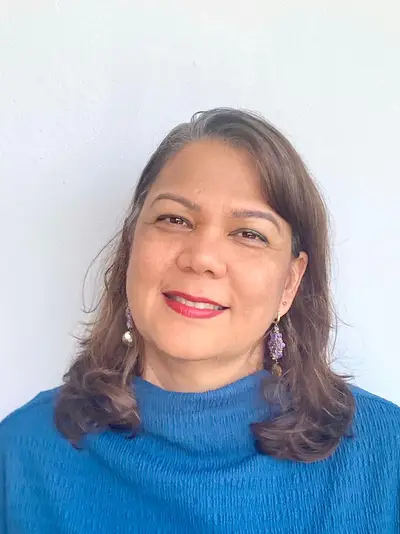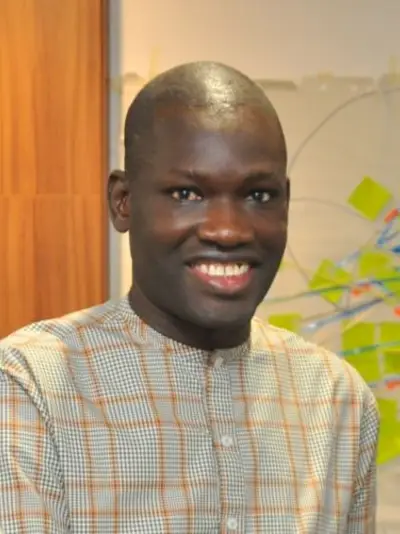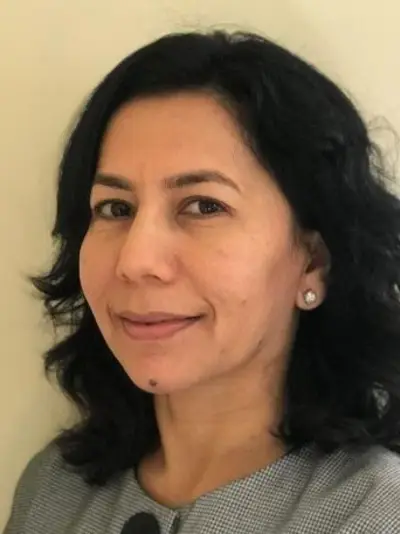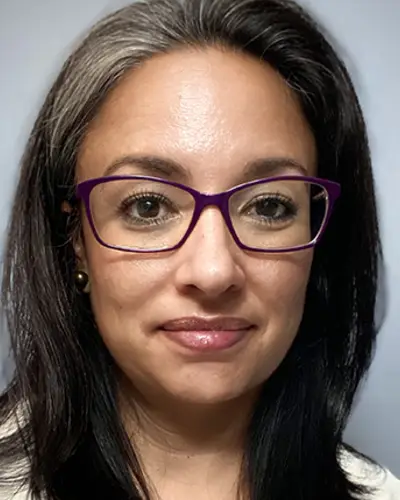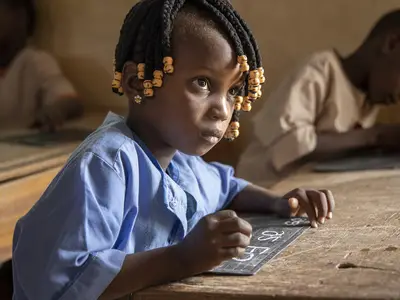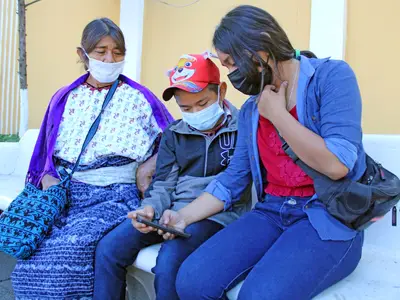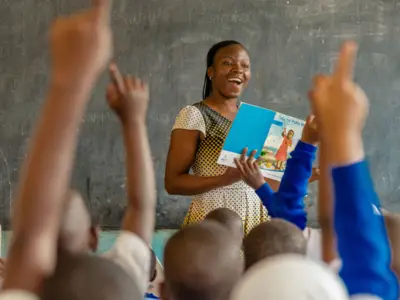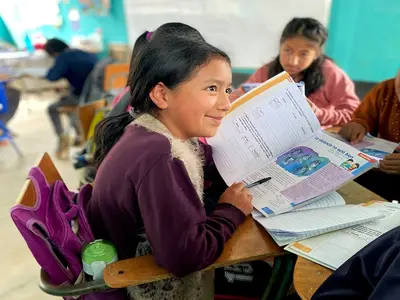Providing Evidence-Based Solutions for Improved Teaching and Learning in Low- and Middle-Income Countries
RTI’s approach to teaching and learning is grounded in rigorous, evidence-based pedagogy, with a focus on creating environments that are nurturing and conducive to learning. We strive to improve learning at scale for all children, regardless of gender, language, socioeconomic status, or physical, cognitive, or other barriers.
By working closely with education stakeholders, we foster sustainability and self-reliance at all levels of education systems. One way we do this is through developing instructional materials. These materials include teacher guides, learner textbooks, decodable readers, supplemental materials, manipulatives, inclusive assessments, and classroom and take-home materials.
We research, document, and employ best practices for teaching and learning in low- and middle-income countries. In everything we do, we prioritize collaborating with local actors to access and build on the expertise that already exists in each system, school, and community. Over the past four decades, we have distributed 75 million books in over 60 languages, reaching 56 million children and 900,000 teachers across 130,000 schools.
Teaching and Learning Expertise
Improving Curricula and Learning Materials
RTI works to tailor curricula and other classroom materials that are responsive to the realities of local environments and that promote equitable and inclusive instruction in reading, mathematics, and other core content areas. Our aim is to assist the teachers, schools and communities we serve by building capacity and improving on what they offer to students.
- Project Highlight: The USAID Okuu Keremet! Project in the Kyrgyz Republic is increasing the supply of quality children’s books, notably in the minority languages of Tajik and Uzbek. In addition to digitizing books for the Ministry of Education and Science to host on its website, Okuu Keremet! has developed over 1,300 separate book titles and will print and distribute over 1.7 million copies of books in four languages to schools by project end.
Supporting Professional Development for Teachers
Stand-alone trainings are not enough to support teachers as they master new skills. RTI works within existing education systems to deliver and strengthen ongoing instructional coaching and in-school mentoring alongside teacher training to help teachers meet the needs of all of their students.
- Project Highlight: Through the USAID Tusome Early Grade Reading Activity, our partnership with the government of Kenya resulted in regular one-on-one instructional coaching for more than 77,000 teachers of grades 1–3, teachers who taught over 10 million children over the life of the project. The Tusome approach, including teacher professional development, led to significant increases in the ability to read grade level text.
Engaging with Families and Communities to Support Learning
Like any skill, gains in fluency in reading or mathematics requires practice, in and out of the classroom. RTI-implemented projects help teachers engage with parents to support their children’s learning and give parents tools they can use to help their children learn.
- Project Highlight: After implementing a social and behavior change communication initiative, families supported by the USAID Read Liberia Activity were more engaged in helping their children learn to read, even when they experienced COVID-19 school disruptions, and this trend continued after direct project support ended.
Promoting Social and Emotional Learning
Social and Emotional Learning (SEL) is central to both teaching and learning. Social, emotional, and academic learning are mutually supportive and synergistic: all are required for children to fully benefit from instruction, regardless of ability or background. RTI merges social, emotional, and academic learning into all aspects of instruction to foster equitable learning for all children.
- Project Highlight: The ABC+: Advancing Basic Education in the Philippines project is fostering a more equitable, inclusive, and nurturing climate for learning. Themes of SEL and gender inclusion are embedded in materials, with teachers supported in exploring these themes through book selection, comprehension-modeling techniques, and writing exercises.
Fostering Inclusive Education
RTI is committed to meeting the learning needs of all children by adapting teaching and learning methods and school environments to serve all students, including the most marginalized, at-risk, and vulnerable. This includes integrating Universal Design for Learning (UDL) principles in our teaching and learning materials for students and our approaches to training and supporting teachers. It also includes developing screening tools for various types of disabilities and working to foster well-being in teachers and students.
- Project Highlight: Under the USAID All Children Reading and All Children Learning projects in Cambodia, RTI used UDL principles to guide curriculum materials development, screened 5,500 children for vision and hearing loss, and taught teachers, parents, and children Cambodian Sign Language (CSL), including working with local volunteers to help out-of-school children learn CSL.
Enriching Higher Education
RTI’s work in teaching and learning focuses on reading, writing, numeracy, and social-emotional learning from pre-primary through secondary levels of school, while also improving higher education opportunities for aspiring teachers. Activities to improve higher-education teacher-training programs equip teachers to teach core content areas; they also strengthen teacher’s abilities to promote safe and quality education, reducing drop-out, use technology strategically to improve their instruction, and find creative ways to support the learning needs of all children and youth in their classrooms.
- Project Highlight: USAID’s Transforming the Education System for Teachers and Students in Liberia (TESTS) Activity is a 5-year program designed to strengthen Teacher Training Institutions across Liberia. TESTS is collaborating with diverse stakeholders across Liberia to develop a harmonized core curriculum for Teacher Training Institutions, improve the functioning and management of these institutions, strengthen capacity of institutions’ faculty, and provide scholarships and support to aspiring teachers. One early success of this Activity is the enthusiasm with which Teacher Training Institutions have adopted a course on UDL and have started expanding its use in other programs.
Related Projects
Basic Education Activity: Advancing Literacy and Equity in the Dominican Republic
Read More about Basic Education Activity: Advancing Literacy and Equity in the Dominican Republic






